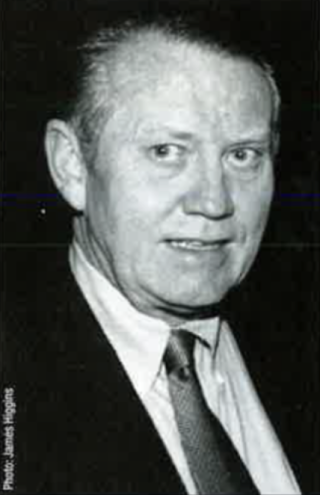
Charles Feeney
The name of Charles `Chuck’ Feeney became known worldwide in January 1997 when it emerged that the New Jersey-born businessman had given away his entire personal fortune of almost $4 billion and in the process created the fourth largest philanthropic organization in America.
For years Feeney had secretly donated hundreds of millions of dollars to charities, medical research and educational institutions, but the reclusive billionaire never wanted his identity exposed. It only came to public notice when he cashed in his hugely successful DFS (Duty Free Shop companies) stock and it became clear that the details of his philanthropy would become public in the legal details of the sale.
Feeney, 65, who holds both Irish and American citizenship, had managed to evade publicity for years by funneling his money through philanthropic foundations. He established the Atlantic Foundation in Bermuda in 1984 and quietly transferred his assets to it, then distributed a fortune to charity through the foundation and the Atlantic Trust.
He acquired his fortune through his worldwide chain of duty free shops, the first of which he set up in 1960 in Hong Kong with partner Robert Miller.
Feeney was born in Elizabeth, New Jersey, and attended Cornell University on a scholarship and through the GI Bill. Among the universities to which he donated money are the University of Limerick, which received $15 million, and Trinity College, Dublin, which received $10 million. He gave some $100 million in total to Irish institutions. According to his friends, Feeney believed that great wealth brings great responsibility. “Just what are people going to do with all this money?” he once asked. “It’s not like they can take it with them.”
“He doesn’t view billionaires as heroes. His heroes are people doing inner-city education, working on cures to diseases,” said one of Feeney’s colleagues.
Despite his own colossal amounts of money, Feeney did not surround himself with the trappings of wealth, preferring a quiet, modest lifestyle. In what his friends say is classic Feeney style, his sister called to toll him he was on the from page of the New York Times when the story of his remarkable charity broke. She told Feeney to go and buy the paper at the out-of-town magazine store, “and not wait until it was in the public library in a few days’ time.”
Feeney himself related that a friend had called from Hawaii and sympathized with Feeney’s secretary because he thought Feeney was dead. “Why else would all the money be given away, he figured,” Feeney said. “I guess he got a shock when I got on the phone.”
Feeney, apparently, kept a mere $5 million for his personal use. He is divorced and remarried with five children from his first marriage and he has said that part of his decision to give away his fortune was related to his desire to see his children live normal lives, based on their own achievements, not his.
His interest in Ireland has also included a strong desire to help with the situation in the North, and Feeney became involved in the current peace process some years ago. In 1987, he met with Gordon Wilson, whose daughter, Marie, died in the IRA bombing in Enniskillen, County Fermanagh that year. Feeney traces his roots to Fermanagh.
Feeney decided he wanted to help end the conflict which caused such atrocities, and made contact with Shin Féin, the political wing of the IRA, and all the other major political parties in Northern Ireland. He was a member of the Irish American delegation which traveled to Ireland in 1993 and 1994 to negotiate for a sere, and to push the benefits of American involvement. With the historic IRA ceasefire of August 1994, Feeney agreed to fund a Washington office for Sinn Féin to the tune of $20,000 a month. The Friends of Sinn Féin still have an office in Washington.
“He is much more concerned to benefit other people than he is to benefit himself and he is also willing to take enormous risks, to try to do the right thing in difficult circumstances as he has proven in Northern Ireland,” said his friend, former Congressman Bruce Morrison. “He is really one of a kind.”
“This man saved lives in Ireland,” said another friend involved with the peace process. “All too rarely do we see people like him put his money where his mouth is.”
